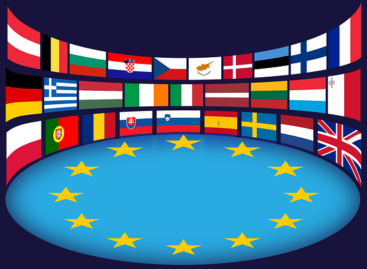Digital literacy levels in Europe
The European Commission has warned that they are making slow progress in achieving the goals, the VIMOSZ newsletter quotes the pan-European news portal Euractiv, according to which 80% of adult EU citizens should have basic digital skills by 2030, and 20 million ICT professionals should be employed.

The EU representatives and experts pointed out that there is a need for increased support for raising the level of education and retraining, because they expect great results despite the fact that currently, on average, 0.1% of GDP in the EU is spent on adult education.
According to Eurostat data, in 2021, 54% of 16-74-year-olds in the EU had at least basic general digital skills, but this figure varies widely – from 79% in the Netherlands and Finland to 28% in Romania. Moreover, this percentage drops to 26% if we look at those with more advanced digital skills. Fostering an effective digital education ecosystem and continuous development of digital skills are emphasized. In the framework of the European Pillar of Social Rights, the EU aims for at least 60% of adults to participate in a training course by 2030, yet this rate was 10.8% in 2021, the highest in Sweden, Finland and the Netherlands. According to a study, the number of training courses is low in many countries due to their cost, relevance and quality.
Related news
Mandatory indication of origin for nuts and dried fruit from 1 January 2025
From the beginning of 2025 it will be compulsory to…
Read more >Eurozone inflation accelerated to 2 percent in October
On an annual level, the increase in consumer prices in…
Read more >The producer price of garlic is more than 20 percent higher
According to Eurostat data, the yield of garlic was between…
Read more >Related news
Márton Nagy: tourism in Hungary is divisive
Hungarian tourism is booming, Ferihegy is the fastest growing airport…
Read more >







